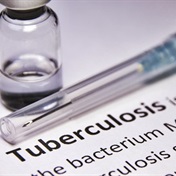Having tuberculosis patients wear a surgical mask all day cuts the likelihood of them transmitting the infection through the air by nearly half, according to a local study.
"It's great to know now that it's very effective," said Dr Rod Escombe, a researcher at Imperial College London, who was not involved in the study. "I had already recommended it, and it was already suggested by guidelines, but we've never had any evidence before that wearing a mask works".
Tuberculosis, or TB, is an infection caused by bacteria. In most cases it's treated with antibiotics, but in the 1990s cases emerged that don't respond to at least two of the primary drugs used to treat TB.
The study, led by Dr Ashwin Dharmadhikari at Brigham and Women's Hospital in Boston, included 17 patients with multidrug resistant TB, who were being cared for at a facility in South Africa.
The pros and cons of masks
Masks have been thought to reduce TB transmission, because the bacteria are spread through droplets in the air coughed out by patients.
Dharmadhikari said that it has usually been health care workers and uninfected people who don the masks. To see how well they work when patients wear them, the researchers asked the patients to alternate days wearing a mask.
On mask-wearing days, the air from the patient rooms was ventilated into a chamber with 90 guinea pigs. On mask-off days, the air went to a different chamber housing another set of 90 guinea pigs.
Escombe said guinea pigs are very susceptible to tuberculosis, and the set-up is a good way to measure how infectious people are.
After three months, 36 guinea pigs who breathed air while the patients wore masks tested positive for TB infection, while 69 guinea pigs contracted TB from the exhaust air on days when the patients did not wear masks.
Results of study 'exciting'
Dharmadhikari said he was excited by the results. "In places where there are high amounts of tuberculosis transmission like South Africa, having easy to use interventions to reduce transmission is really positive," he said.
Given that the masks did not completely eliminate infections, though, "it's also apparent one should never rely just on masks," Dharmadhikari added.
Getting patients on treatment as soon as possible will cut the spread of the infection. And keeping patients isolated or in well-ventilated facilities can also help, Dharmadhikari said.
While masks are simple to use and inexpensive, it might not be feasible in all cases to have patients wear them.
"Stigma is a problem," Escombe said, and having some patients wear a mask could be seen as a negative label. Dharmadhikari agreed. "We have to be attuned to local or cultural norms and practices and expectations," he said.
One solution is to have everyone wear a mask, say, in a waiting room, which would ensure that no one is singled out.
According to the World Health Organization, one out of three people worldwide has been infected with the bacteria that cause tuberculosis, but only five to 10 percent of them will become sick or infectious.
Worldwide, about 440,000 people a year are estimated to be infected with drug resistant TB.
SOURCE: http://bit.ly/w1NtaUAmerican Journal of Respiratory and Critical Care Medicine, online February 9, 2012.
Read more:
Living with TB
TB in South Africa
(Reuters Health, March 2012)




 Publications
Publications
 Partners
Partners














